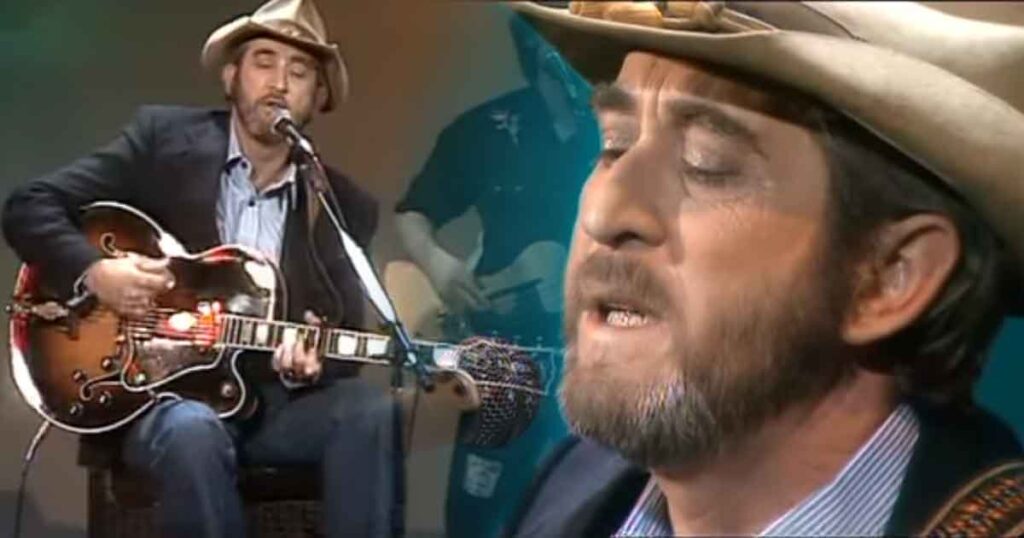
Don Williams’ “Then It’s Love” (1986): Finding the Undefinable in the Gentle Giant’s Late-Career Glow
There are certain songs that, the moment the first notes drift out of the speaker, transport you back. They aren’t just melodies; they’re emotional bookmarks tethered to a specific time, a feeling, a person. For many of us who came of age or simply lived life’s quiet dramas through the 70s and 80s, the rich, honeyed baritone of Don Williams provided the soundtrack to those deeper, more reflective moments. His music possessed a unique blend of gentle strength and profound sincerity, earning him the affectionate moniker, “The Gentle Giant.” And few tracks from his late-career run capture that simple, undeniable truth of human connection quite like the 1986 hit, “Then It’s Love.”
Released in October 1986 as the third single from his album New Moves, “Then It’s Love” immediately found a warm welcome on the country charts. It soared to a peak position of Number 3 on the Billboard Hot Country Singles & Tracks chart, solidifying Williams’ remarkable consistency as a radio staple well into the latter half of the decade. The track, penned by the inventive songwriter Dennis Linde, the man behind hits like Elvis’ “Burning Love” and the Dixie Chicks’ “Goodbye Earl,” carries a jaunty, almost breezy feel, a welcome contrast to some of Williams’ more pensive, stone-cold ballads. It’s a testament to Williams’ interpretive skill that he could take a song with a somewhat lighter lyrical touch and imbue it with his signature sense of weight and importance.
The song’s fundamental meaning lies in its quest to define something ultimately indefinable: genuine love. The lyrics don’t offer a dramatic declaration or a list of grand gestures. Instead, Linde, through Williams’ assured delivery, paints a picture of a love that is found in the absence of the usual signs—the lack of thunder and lightning, of over-the-top, movie-style romance. It poses a series of introspective, almost philosophical questions: “If it isn’t lightning, thunder, all the things that love is supposed to be… Then what is it?” The comforting conclusion, delivered with a calming certainty only Don Williams could muster, is that if it brings you peace, if it simply feels right, if it’s what you keep coming back to… “Then It’s Love.” It’s a message that resonates deeply with an older audience, those who have seen the fleeting nature of “lightning and thunder” and have come to appreciate the enduring warmth of a steady, reliable flame. It speaks to the recognition of true partnership over transient passion.
While specific, detailed accounts of his very first live performance of “Then It’s Love” are often lost to the mists of time for a veteran performer with such a vast catalogue, one can easily imagine the scene. Picture the late 1980s: a softly lit auditorium, the low hum of anticipation. Don Williams, tall and unassuming, steps to the microphone, his acoustic guitar ready. He introduces this new song, maybe with a wry smile, suggesting it’s a little different—a bit more rhythmically playful than some of his classics. As the smooth bassline and the subtle doo-wop flourishes of the arrangement begin, the audience, accustomed to his gentle command, leans in. When he hits that chorus, affirming that this quiet, comfortable feeling is indeed it, a knowing sigh of recognition must have swept through the crowd. This was not the flash-in-the-pan music of the moment; it was the voice of experience, confirming what they already knew in their own long-standing relationships. It’s this profound sense of shared understanding—the artist validating the audience’s lived experience—that made Don Williams truly special.
Listening to “Then It’s Love” today isn’t just listening to a hit song; it’s revisiting a simpler era of country music, one where the focus remained squarely on the lyric and the emotion. It’s a tender reminder that life’s greatest treasures often arrive not in a sudden, blinding flash, but in the slow, steady accumulation of mutual respect and quiet, profound affection. It’s a classic for a reason, a musical hug from a beloved friend we’re always grateful to hear from again.